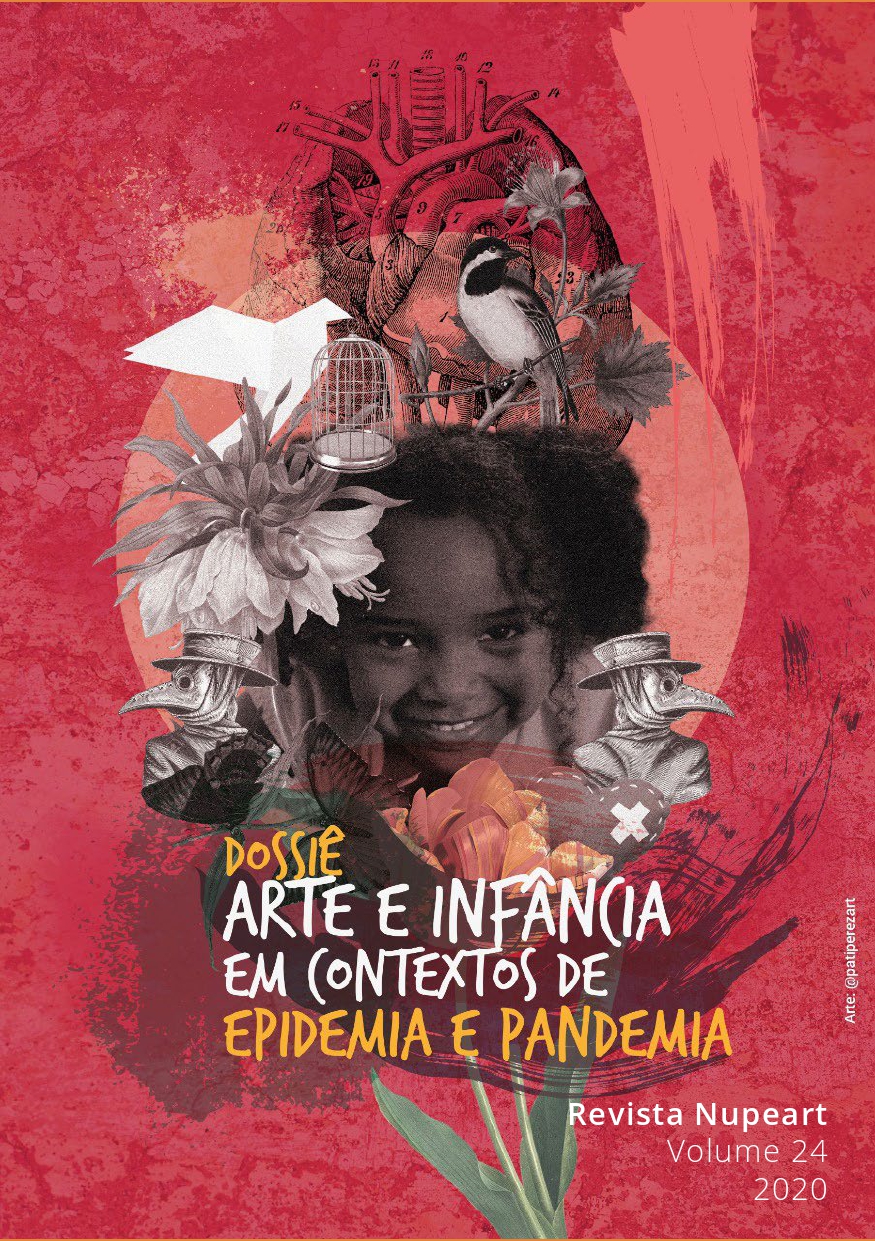Teatralidades para infâncias confinadas: jogos, narrativas e outras poéticas visuais
DOI:
https://doi.org/10.5965/23580925242020104Keywords:
teatralidade, infância, confinamentoAbstract
This experience report narrates, describes and comments about the paths that led to the creation of a technovivial theatrical experiment, experienced with children between the ages of 7 ans 12, from virtual meetings held by videoconference. Creative practices were proposed, through statements experienced collectively with a group of 10 participants, during the period of 1 hour. Such statements were guided by the reinvention of proposals that were inspired by theatrical games, improvisation exercises, storytelling practices and had as a raw material the "children relationship with playing". This creative proposal emerged in the context of social isolation, which began to permeate everyday life, on a world scale, in the year of 2020. The text contributes to unveiling the invented paths and some reflections made towards a creative practice that thinks about the relationship between the child and the creative use of technology.
Downloads
References
DUBATTI, J. Arte, Convívio e Tecnovívio. In: CARREIRA, A. L. A. N.; BIÃO, A. J. C; TORRES, W. L. (Orgs.). Da Cena Contemporânea. Porto Alegre: ABRACE, 2012. p. 13-35.
MACHADO, M. M. A criança é performer. Revista Educação e Realidade, São Paulo, v. 35, n. 2, p. 115-137, ago. 2010a
MACHADO, M. M. Merleau-Ponty & a educação. Belo Horizonte: Autêntica, 2010b.
WINNICOTT, D. W. Por que as crianças brincam? In: A criança e o seu mundo. Rio de Janeiro: LTC, 1979.
Downloads
Published
How to Cite
Issue
Section
License
Copyright (c) 2020 Revista NUPEART

This work is licensed under a Creative Commons Attribution 4.0 International License.
Os autores cedem os direitos sobre suas obras a Revista NUPEART para a publicação dos originais baixo uma licença Creative Commons Atribuição 4.0 Internacional.
Esta revista, seguindo as recomendações do movimento de Acesso Aberto, proporciona acesso público a todo seu conteúdo, seguindo o princípio de que tornar gratuito o acesso a pesquisas gera um maior intercâmbio global de conhecimento.

